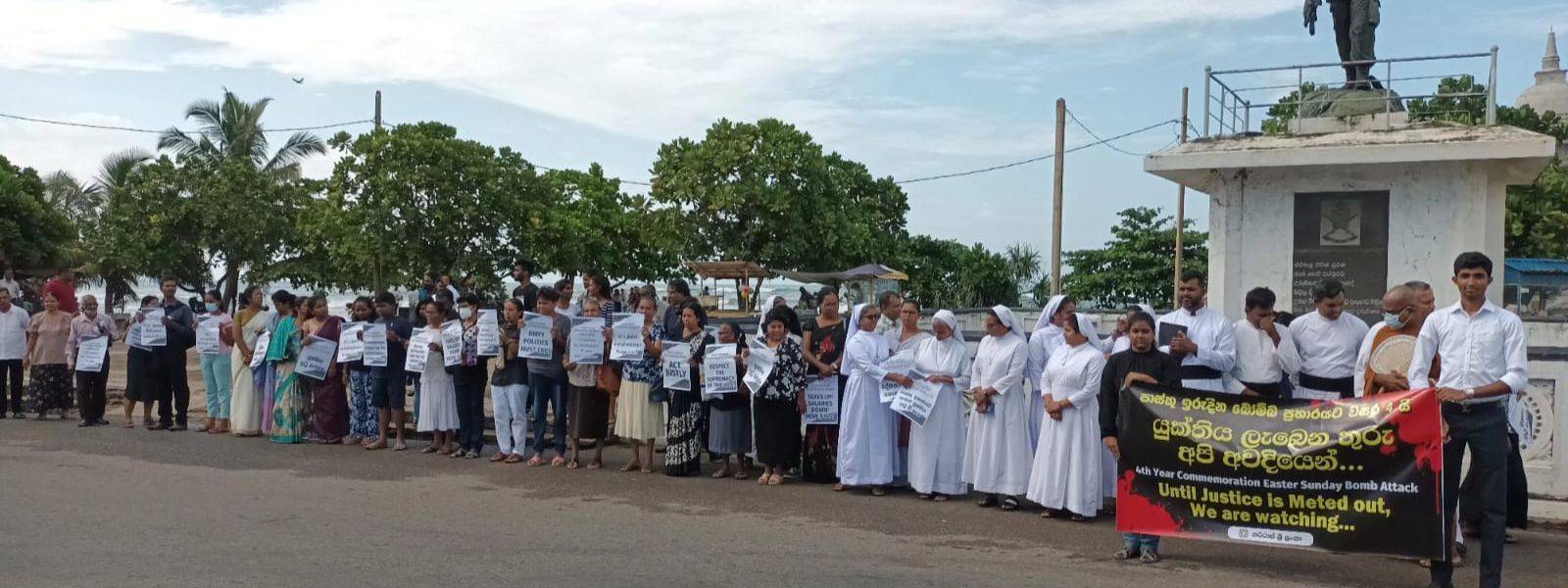.webp)

People have a moral right to protest
By Jehan Perera
Colombo (News 1st) -
The government has decided to present its proposed Anti-Terrorism Act (ATA) to parliament for debate on April 25. The decision to delay calling for a vote on it, and not using the government’s majority to bulldoze its decision, is to be welcomed.
The government needs to reconsider the present formulation of the ATA as it would impact on the democratic space and rights available to political parties, trade unions and civic activists.
In any legal reform, the fundamental rights and protection of citizens need to be guaranteed. The power of the people is shared with the government for their benefit as per the constitution. The ATA fails to achieve both these objectives.
The draft ATA presented by the government has several features that are worse than the Prevention of Terrorism Act (PTA) that it is intended to replace. Unfortunately, it appears there is no change in the mindset of those who have framed the replacement legislation for the PTA. Instead, there are indications of a mindset that wishes to suppress political activism on the grounds of terrorism.
What has changed since the protest movement came on to the streets a year ago and the present time is the appearance of law and order. There is also the reappearance of nearly all economic items and commodities rather than the severe shortages of a year ago.
However, the reasonable and legitimate demand of the people is that those who are, and were, responsible for the impoverishment of the country, and have siphoned money abroad one way or the other, should be held to account and punished.
People have a moral right to protest when the government they have entrusted their collective futures to behaves in a self-seeking and unconstructive manner. Over the past year the government has used the security forces to crackdown on the protest movement and to quell public protest, and also embarked on a process of IMF-directed economic recovery in which the main burden of price rises and cuts in social welfare have fallen on the poorer sections of the population.
The system of democracy is based on notions of social contract that go back three centuries in time. According to these theories, people give up parts of their rights and freedoms to the government which promises to fulfill those rights and obligations to the people’s benefit.
However, this governmental obligation has not been fulfilled with the collapse of the Sri Lankan economy in a short space of time in which prices shot up by 100 to 200 percent while incomes remained the same or even fell.
In a situation where people lost their jobs in the shrinking economy which shrank by 9 percent last year and is expected to fall by 4 percent this year, the people have a legitimate right to protest when they see that the corruption and mismanagement within the government is not being adequately dealt with.
In the aftermath of the economic collapse, a responsible government would seek to take action in these areas and mitigate the sufferings it has caused the people.
Protest is morally justified when basic human rights are violated and the door to legal and democratic political remedies is shut with the government refusing to accept responsibility or resigning and holding fresh elections in the face of calamity.
More than a year after the economic collapse and resignation of the government most of whom were reappointed, there have neither been elections to give people a new set of elected representatives whom they might place their confidence in, nor has there been progress in the holding of those who created the economic collapse accountable for their wrongdoings.
Instead, many of those who broke the economy are sitting in office and trying to repair the damage as if nothing had happened. There is the placing of more and more economic burdens on the masses of people in the form of tax hikes and anticipated cuts in jobs. While more loans have been obtained from the IMF, the decisions on how to allocate and spend those resources lie with essentially the same group who were instrumental in bringing the country to its present state. In these circumstances, there is nothing to ensure there will not be a repeat of the past. The wrongdoers have neither been held to account or removed from positions of power. These form the basic MORAL justifications for the continuation of the protest movement which the ATA seeks to suppress.
Jehan Perera is Executive Director of the National Peace Council of Sri Lanka (NPC) which works in all parts of the country with networks of partner NGOs and inter-religious groups. NPC focuses on building public support for a political solution to the ethnic conflict.
Other Articles
Featured News





.png )





-794314_550x300.jpg)



















.gif)